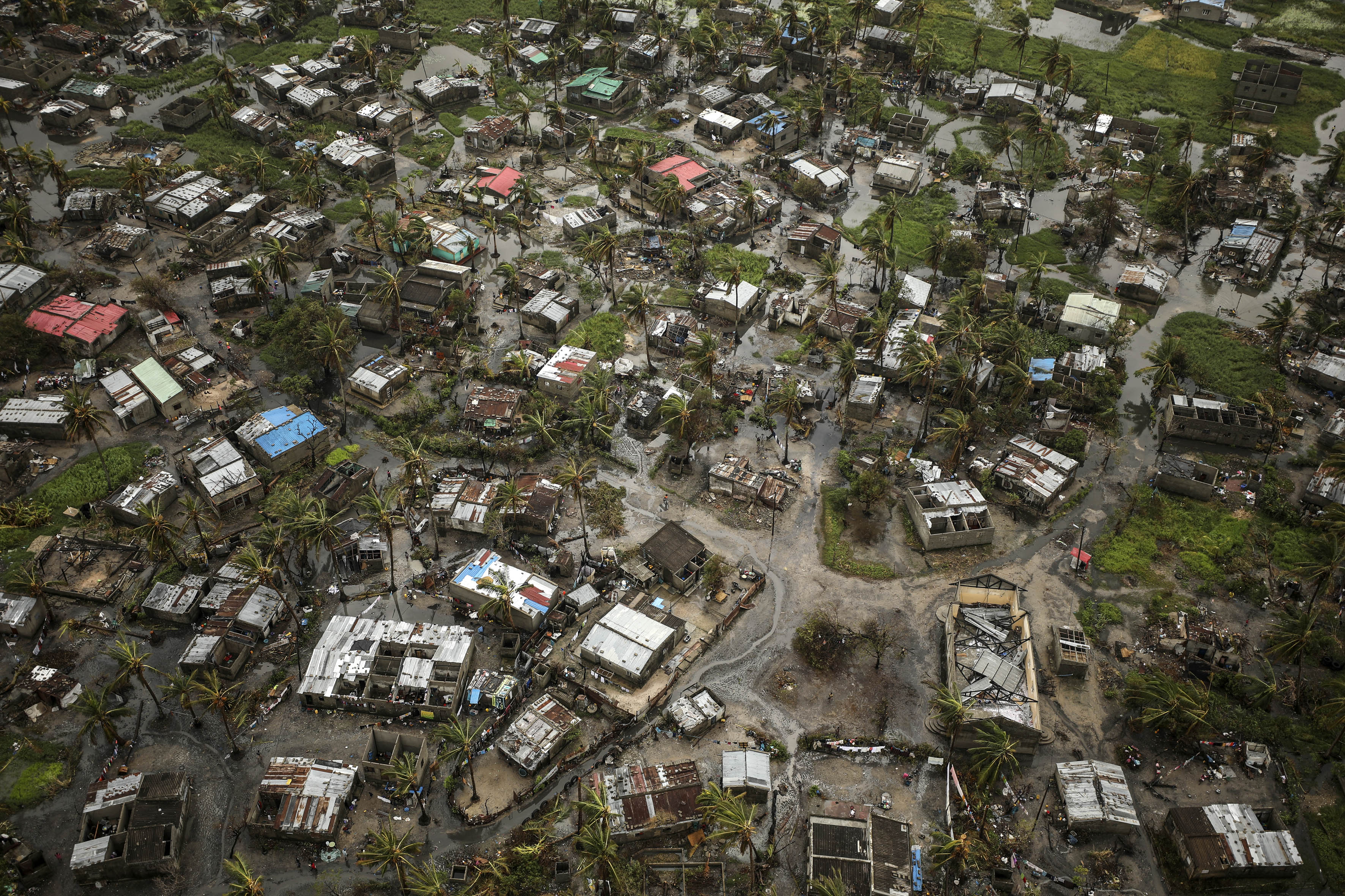Future: Africa is already investing in green energy, such as this thermosolar plant in Morocco. (Youssef Boudlal/Reuters)
COMMENT
Earlier this year, Tropical Cyclone Idai tore through Southern Africa, killing hundreds, injuring thousands and displacing even more. In Mozambique, as much as half of all annual crops and critical infrastructure were destroyed. In total, more than three million people in the region were affected. It was a stark reminder of Africa’s vulnerability to the intensifying consequences of climate change.
Cyclones are nothing new, but as climate change progresses, they are becoming increasingly common. The Indian Ocean has an average of three cyclones in a cyclone season, yet in this season alone, there were seven. The same goes for other kinds of weather events. In Zimbabwe, more than two million people are now facing an acute water shortage as a result of climate change-induced drought.
But even as Africa faces new crises created by climate change, it also has major opportunities to expand its economy and reduce still-pervasive poverty. The combined gross domestic product of African countries vulnerable to climate change is on track to rise from $2.45-trillion in 2019 to $3.46-trillion in 2024.
Can Africa secure this economic progress without contributing further to climate change? The solution lies in a kind of green new deal — a comprehensive strategy for achieving sustainable growth, much like the one being championed by some Democratic politicians in the United States. A pillar of such a plan would involve making large-scale investments in renewable energy.
Whereas a US green deal would focus on shifting away from fossil fuels, the infrastructure for which is already in place, an African strategy would be delivering energy (and energy infrastructure) from scratch. About 60% of the people worldwide who don’t have electricity live in Africa.
Yet, last year Africa received less than 15% of global energy investment and much of those limited funds are still going toward yesterday’s technologies. Between 2014 and 2016, nearly 60% of Africa’s public investment in energy went to fossil fuels — $11.7-billion, on average, each year.
This approach is not only environmentally irresponsible, it also makes little economic sense. Renewables are already outcompeting fossil fuels globally, and bold action on climate now promises to bring major economic benefits — to the tune of $26-trillion globally by 2030. Given this, the European Investment Bank — a longstanding source of energy investment in Africa — should approve an existing proposal to halt all lending for fossil fuel-reliant energy projects by the end of 2020.
Africans are already promoting sustainable development. The AU’s Agenda 2063, created in 2013, set an ambitious blueprint for attaining sustainable and inclusive growth over the next half-century. The African Renewable Energy Initiative, founded in 2015, focuses on increasing the use of renewables, while expanding overall energy access.
On the ground, solar mini-grids are delivering cheap renewable energy to people across Africa, increasingly at competitive prices relative to comparably sized diesel-powered grids. Solar home systems and clean-cooking solutions are also providing cost-competitive clean energy access. In East Africa, households equipped with solar systems saved an estimated $750 each on paraffin and eliminated 1.3 tonnes of carbon dioxide over the first four years of use.
What a green new deal must do is bring such innovations to scale, through co-ordinated public and private investment in wind and solar power generation — both on and off the grid — and support for the deployment of clean-cooking solutions. This should be integrated with broader efforts to foster green industrialisation and entrepreneurship.
Substantial funding is already on offer. Earlier this year, the World Bank announced plans to provide $22.5-billion for climate adaptation and mitigation in Africa for 2021-2025. The African Development Bank recently invested $25-million in a renewable-energy equity fund that plans to add 533 megawatts of installed energy-generation capacity in Sub-Saharan Africa. This initial public investment is expected to mobilise an additional $60-million to $75-million from private investors.
 Climate change is causing a crisis on the continent, as experienced when Cyclone Idai hit Beira in Mozambique, Malawi and Zimbabwe. (Mike Hutchings/Reuters)
Climate change is causing a crisis on the continent, as experienced when Cyclone Idai hit Beira in Mozambique, Malawi and Zimbabwe. (Mike Hutchings/Reuters)
But, if a country hopes to be a recipient of that private investment, it must have strong energy planning and an effective regulatory regime, which is crucial to functioning clean-energy markets and the emergence of project pipelines. That is why African countries must integrate climate action into all their economic and development planning.
To this end, a coalition of African countries, supported by the United Nations Economic Commission for Africa and the New Climate Economy, an international initiative of the Global Commission on the Economy and Climate, is working to facilitate co-ordinated action that puts the continent on a more inclusive and sustainable growth path. Partnerships with national finance and planning ministers, relevant development-finance institutions, and the private sector will support this process.
Overcoming the formidable problems that climate change poses to Africa will depend on moments of collective focus and clarity. The UN secretary general’s climate summit next month should be just such a moment, with countries committing to step up their emissions-reduction targets under the 2015 Paris climate agreement, so as to reach net-zero emissions by mid-century.
Given their heightened vulnerability, African countries have every incentive to set the bar high, thereby putting pressure on others to ramp up their own contributions. Only with concerted global action will we have any hope of averting climate catastrophe. — © Project Syndicate
Carlos Lopes, of the Mandela School of Public Governance at the University of Cape Town, is the high representative of the AU for partnerships with Europe post-2020 and a member of the Global Commission on the Economy and Climate